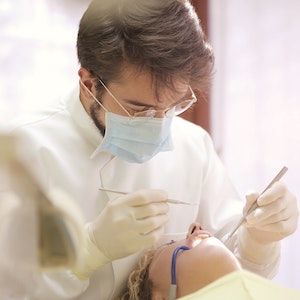Inflammatory Dermatologic, Rheumatologic Conditions Linked to Poor Oral Health
An observational cross-sectional study finds that patients suffering from such inflammatory conditions had a higher average number of missing teeth compared to the control group.

Patients with severe inflammatory dermatologic and rheumatologic conditions generally suffer from poorer oral health and oral health‐related quality of life, a new study finds.
The study investigators, led by Yvonne Kiernan, BDS NUI, MFDS RCSEdin, prospectively evaluated the oral health and quality of life of patients with various chronic inflammatory dermatologic/rheumatologic diseases treated with systemic/biologic therapy.
“Oral health is essential to general health and QoL, and the impact of poor oral health on health and QoL is increasingly recognised,” they wrote. “Poor oral health has been associated with adverse pregnancy outcomes, cardiovascular disease pulmonary disease, and diabetes, although causal relations have not yet been clearly established.”
They further noted that those with inflammatory dermatologic and rheumatologic diseases have reported often more oral discomfort/pain, higher levels of periodontal disease, dry mouth and oral mucosal lesions (OML) than healthy controls.
The Study
In their observational cross-sectional study, they recruited a total of 100 patients (≥18 years), with 2 groups evenly divided between those with chronic inflammatory dermatologic or rheumatologic disease and patients without a history of chronic inflammation.
Patients then received an oral health assessment, which included a questionnaire of 16 items that related to self-assessed oral health, oral pain/discomfort, dry mouth, oral hygiene habits, oral health‐related quality of life, diet, smoking, alcohol, and education.
The physical exam portion of the assessment, which was performed using internationally standardized templates from the World Health Organization (WHO), was conducted by a dentist in each patient’s respective dermatology or rheumatology clinic as supplemental to their standard clinical care. The examination included dental findings and evaluated periodontal health and presence of oral mucosal lesions.
The Findings
Kiernan and colleagues found a statistically significant difference in the prevalence of dry mouth, as reported in the questionnaire, between patients with dermatologic/rheumatologic inflammatory diseases and the control group (82% vs 20%, respectively; P = .001).
Furthermore, patients with inflammatory disease were 18 times more likely to have dry mouth (odds ratio [OR], 18.2; 95% CI, 6.7– 49.6); as many as 57% of these patients reported having dry mouth ‘very often.’
Furthermore, only 60% of patients with inflammatory dermatological or rheumatological disease diagnoses brushed their teeth twice daily – compared with 80% of the control group (P = .037).
The oral health examination revealed that the patients with inflammatory diseases had an average of 7.7 missing teeth, while patients in the control group had an average of 4.4 missing teeth (P = .029). The former had a mean of 5.6 filled teeth, and the latter had a mean of 7.6 filled teeth (P = .008).
And finally, patients with dermatological/rheumatologic disease had a significantly greater loss of clinical attachment (a marker for periodontal disease) in all sextants compared to controls.
The most common inflammatory diagnoses were psoriasis/psoriatic arthritis (48%), followed by rheumatoid arthritis (36%), and systemic lupus erythematosus (6%). Adalimumab (28%) was the most commonly prescribed treatment for these patients, as were etanercept (28%) and methotrexate (16%).
“This study shows an association between oral health and oral health‐related quality of life in patients with severe inflammatory skin and joint disease treated with systemic and biologic therapy,” wrote the investigators
“Dermatologists should receive specific oral health training to optimise the management of oral health in our patients with severe inflammatory diseases,” they concluded.
The study, “Oral health in patients with severe inflammatory dermatologic and rheumatologic disease,” was published online in Skin Health and Disease.